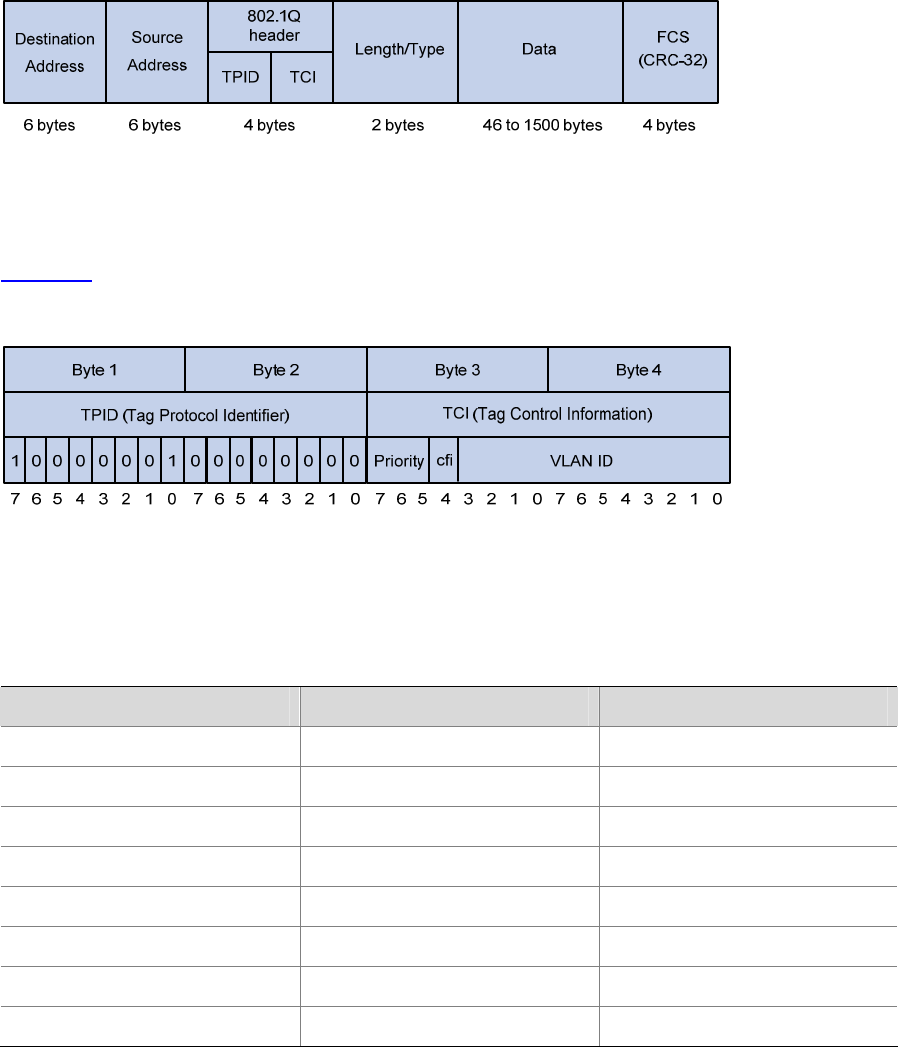
1-6
2) 802.1p priority
802.1p priority lies in Layer 2 packet headers and is applicable to occasions where the Layer 3 packet
header does not need analysis but QoS must be assured at Layer 2.
Figure 1-3 An Ethernet frame with an 802.1Q tag header
As shown in the figure above, the 4-byte 802.1Q tag header consists of the tag protocol identifier (TPID,
two bytes in length), whose value is 0x8100, and the tag control information (TCI, two bytes in length).
Figure 1-4 describes the detailed contents of an 802.1Q tag header.
Figure 1-4 802.1Q tag headers
In the figure above, the priority field (three bits in length) in TCI is 802.1p priority (also known as CoS
precedence), which ranges from 0 to 7.
Table 1-4 Description on 802.1p priority
802.1p priority (decimal) 802.1p priority (binary) Description
0 000 best-effort
1 001 background
2 010 spare
3 011 excellent-effort
4 100 controlled-load
5 101 video
6 110 voice
7 111 network-management
The precedence is called 802.1p priority because the related applications of this precedence are
defined in detail in the 802.1p specifications.
3) Local precedence
Local precedence is a locally significant precedence that the device assigns to a packet. A local
precedence value corresponds to one of the eight hardware output queues. Packets with the highest
local precedence are processed preferentially. As local precedence is used only for internal queuing, a
packet does not carry it after leaving the queue.


















